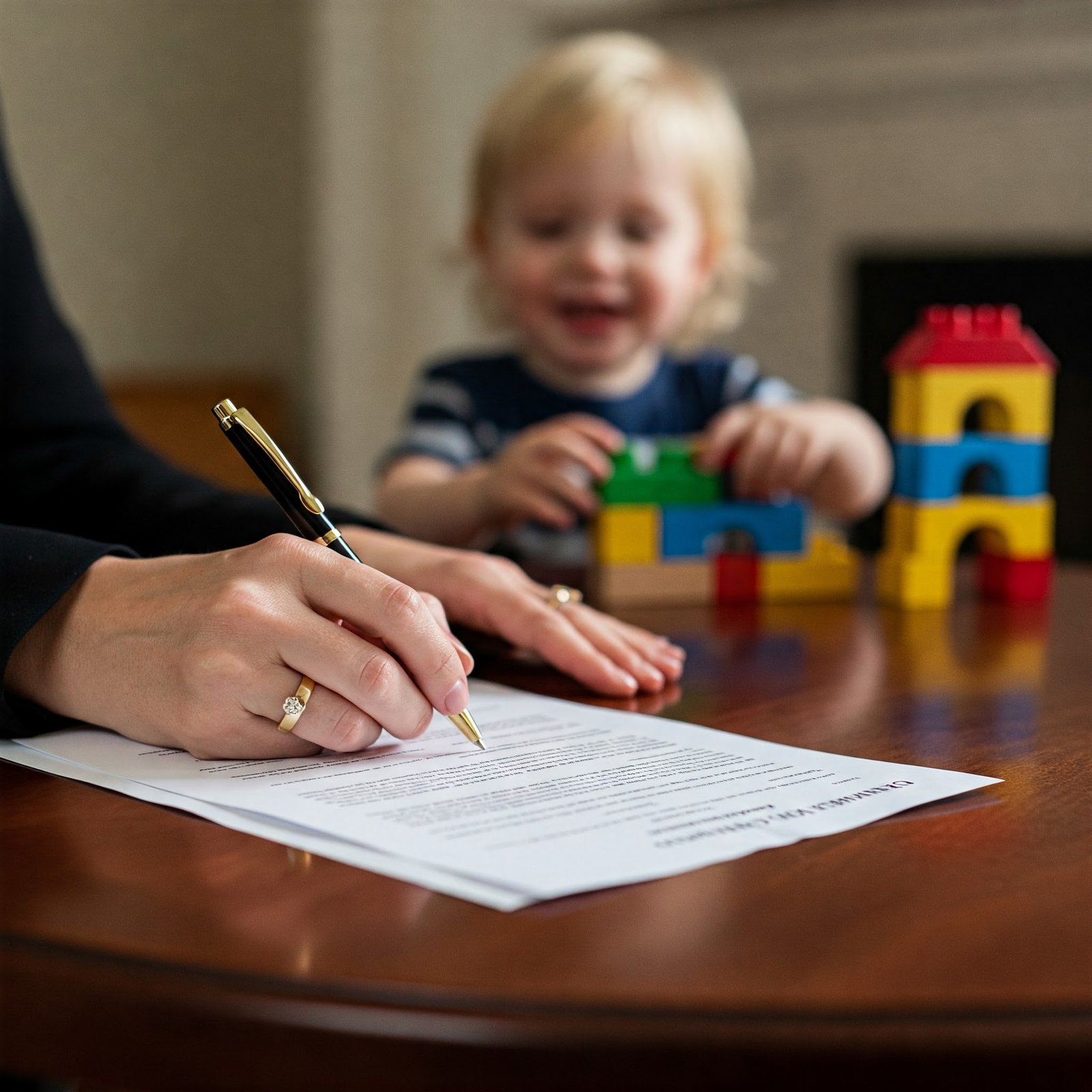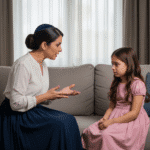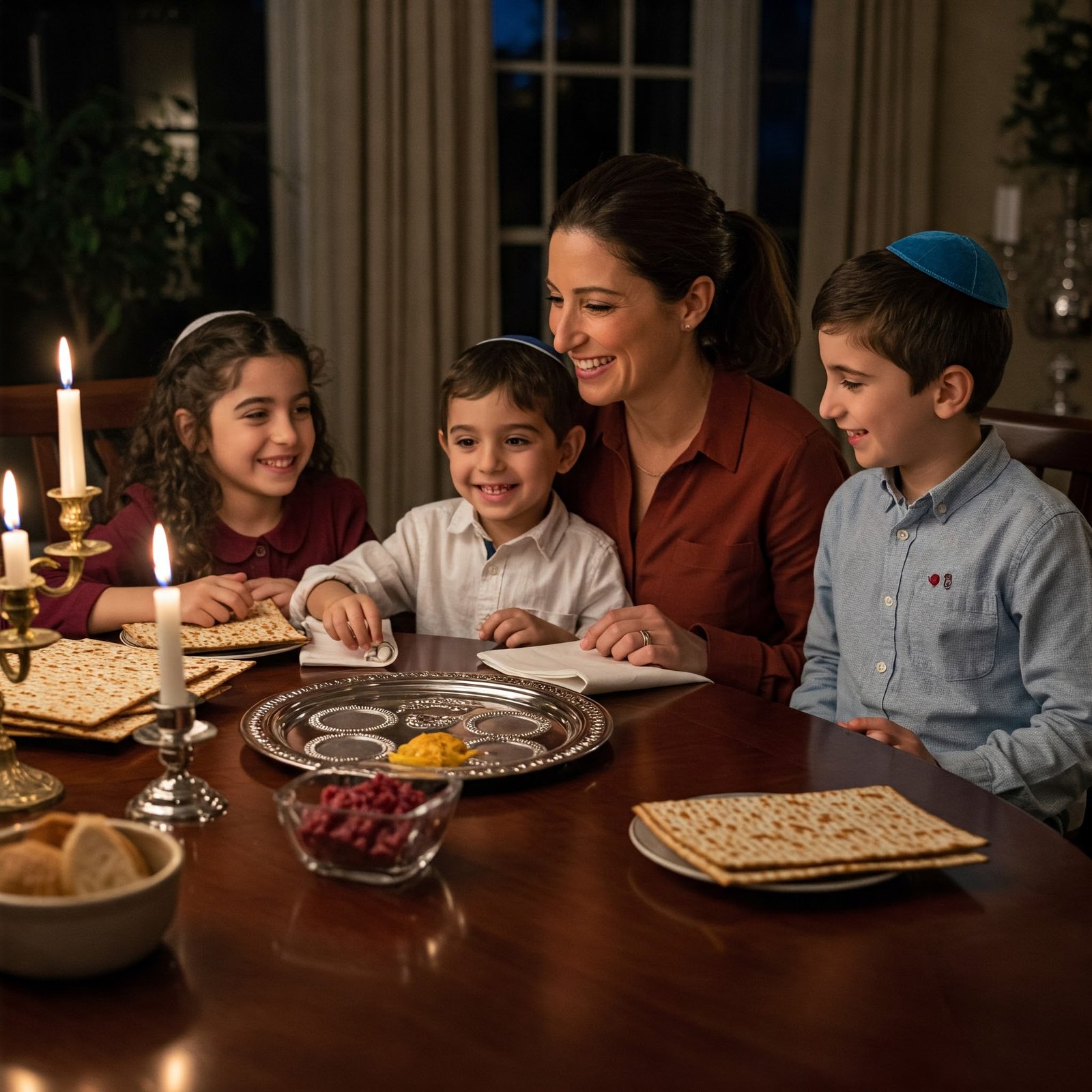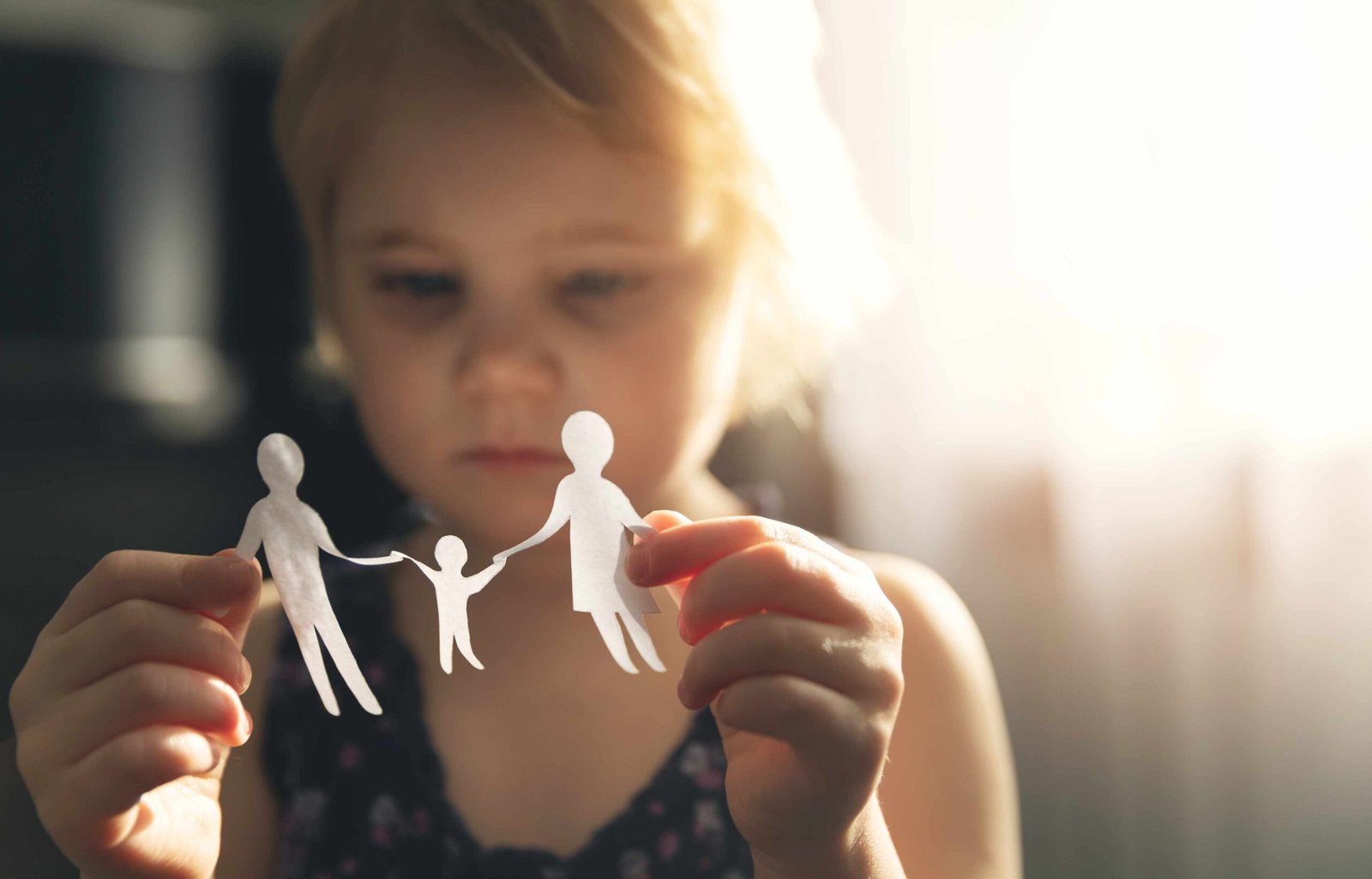Divorce is painful, and when it becomes a constant battle where every conversation turns into a fight and every agreement is a struggle, the pain often reaches far beyond the couple themselves. Children, even when they are not the topic of the battle, usually absorb the tension, the blame, and the confusion. As a toenet rabbanit, I meet parents who are exhausted, angry, and heartbroken.
However, I also see their deep love for their children. Very often, parents will stay in a bad marriage for the sake of the children, pushing themselves to exhaustion. Generally, parents genuinely want what is best for their children, but are not always sure how that looks or how to offer it amid so much pain and confusion.
Many children personalize the divorce and believe that the divorce is their fault.
Children want and need to love both their parents and be able to receive unconditional positive regard and responsiveness from both parents.
This piece offers practical and thoughtful ways to help your children stay whole, even when the family around them feels broken.
Children Are Not Extensions of the Fight
One of the greatest dangers after a high-conflict divorce is when children are pulled into the emotional war zone. They feel pressured to choose sides, to act as messengers, or to protect one parent from the other. No child should be made to feel responsible for adult pain. And yet, it happens constantly. It is the greatest challenge of the divorced parent to leave the children completely out of any conflict between the parents, and it is also essential that the child not be involved in any way. It is natural to feel that we want our children to side with us. We want them to understand us, not blame us, justify the divorce, soothe our grief or guilt and make us feel less alone. It’s normal to try to convince ourselves that we are doing the right thing by doing the above. Don’t the children need to know the truth? Your relationship with your ex-spouse could be strained, and you might be going through tough emotional times. But involving children in parents conflict is unhealthy for the children. We have stepped off the path the minute we want our children to take sides. We will all slip here and there; we are human after all. However, we must be conscious of the severity of involving the children in conflict and committed to honest reflection and accountability when we veer from the path.
Your child might express guilt for wanting to call the other parent. They might feel confused about who they are allowed to love. I always tell my clients that their child is half you and half your ex. When you insult or reject your ex in front of your child, that child often hears you rejecting half of who they are.
Repeating Trash Talk
Your children may come to you after spending time with the other parent and repeat negative comments about you. The natural reaction is to feel defensive and hurt and to lash out with negative comments of your own. Natural? Yes. Emotionally healthy? No.
Divorce done well asks a lot of adults, and this is one of those times. Rather than lashing out, apply your child filter: What response is best for my children?
The answer is to keep a cool head and not react. No drama, please. Stay in your role as a parent. Watch your body language to make sure it supports comments you can make, such as –
- Hmm. (Yep, that’s it!)
- Your mom and I see things differently.
- If you have questions for me, ask. I’m happy to talk with you.
- It’s not your job to tell me what Dad says. I’ll speak directly with him.
Two Homes, Two Sets of Rules
Each parent will have different house rules in their post-divorce homes. It takes adjustment for children as they move back and forth between parents. Fortunately, children are adept at adjusting to differing rules for each home and are typically more flexible than adults in this way. They quickly learn, for example, that rules at daycare or school differ from those at home, and they adapt. They can apply this experience to Mom’s and Dad’s rules with minimal difficulty.
Harder for adults is the often-disconcerting realisation that they have no power over what happens at the other parent’s house. The rules for bedtime, chores, curfew, discipline, and family routines frequently vary from home to home. Successful co-parents accept that unless a situation has to do with them, or is about their child’s immediate health or welfare, what happens at the other parent’s home isn’t their business. That said, it always helps children when both parents have similar rules.
You Do Not Have to Like Your Ex to Respect Their Role
I know it is difficult, but I have sat with many clients whose former spouses have hurt them deeply. They ask me, “How can I possibly support my child having a relationship with my ex after everything he/she has done?” My answer is always the same – you’re not supporting him but helping your child.
Let your children talk freely about happy moments or simple daily things they’ve experienced with their other parents. Sometimes, your child says something that surprises you or hits a tender spot. Instead of reacting right away, pause. Take a breath. Look them in the eye and listen with your whole heart. Children feel safest when they know that at least one parent can stay steady, even when everything else feels broken. Even if you and your ex don’t always see eye to eye, your child is far more likely to thrive when they feel secure and deeply loved by each of you.
The best gift divorced parents can give their children is respect for the other parent.
Managing Transitions Calmly
Exchanges between homes can become a hotspot for drama. If the drop-off becomes a weekly routine, your child will likely dread it. Try to keep transitions short, neutral, and predictable with no big discussions and no last-minute surprises, just a steady routine that helps your child feel safe and secure during every handoff between homes. Even if the other parent acts out, your calmness becomes a safe place for your child. The best way for children to move from one home to the next is via school/gan.
One of my clients started keeping a transition bag by the door. It had her child’s favorite book, a small toy, and a snack. The message was simple – this change is okay. You are loved. You are safe. That little act helped the child settle down and protected her no matter where she was going.
With the difficulties of transition in mind, I created the CustodyCare magnetic board. This board was designed with child physiologists, experienced kindergarten teachers and parents. It gives a feeling of stability in a fun way.
Avoid the Language of Loyalty
Children should never feel like loving one parent means betraying the other. After a brutal divorce, even subtle comments can create emotional pressure. What may seem like an offhand remark to you might feel like a loyalty test to your child.
Watch out for sentences like –
- After everything I did for you, do you still want to go to his house?
- Why did he not call you? That shows how much he cares.
- You don’t want to be there, do you?
Even subtle remarks can make a child feel like they are betraying you by enjoying time with their other parent. Loyalty conflicts can lead to emotional shutdown, anxiety, and long-term trust issues. Your child should never have to prove their love to either parent.
Instead, say things like –
- I hope you have a good time.
- If you want to talk while you are there, call me.
- You can tell me anything.
Erasing the pain is not the goal, but making space for your child to feel safe and loved without being trapped in the middle is.
When the Other Parent Is Unsafe for Your Child
Sometimes, one parent might act in manipulative, emotionally damaging, or just plain unhelpful ways, which can mess with the kid’s ability to have a good relationship with them. But even then, your child still deserves honesty without hate.
Instead of “He does not care about you,” try, “Your father is struggling right now. I am here to keep you safe.” That keeps the door open for your child to feel sadness, confusion, or anger without being forced to take your side.
Remember, children often grow into their own opinions. Let them arrive at those truths without being pushed.
You Can Set Boundaries and Still Be Supportive
Loving your child means protecting them, including setting behavior, language, and safety limits. You can gently say, “Here at home, we speak with kindness about both of your parents,” or “What matters most is that you feel safe wherever you are.” Boundaries from love are not harsh; they remind your child that their well-being matters and that home is still a place of peace. Supporting your child’s connection with both parents never means accepting behavior that puts them at risk.
Another way to express it is –
- I must ensure you are safe, which means we have some rules.
- We do not talk to each other that way in this house.
- You can have your relationship with your father, and I am here if you want to talk.
Despite a messy life, you are modelling strength, kindness, and healthy communication.
Your Child’s Healing Is a Long-Term Process
Fixing everything today is not the goal because divorce leaves layers, and there will be hard days. Your child might pull away, act out, or go silent. What matters most is consistency.
Keep showing up with a soft tone and reinforcing that you can love us both.
Sometimes, children come home from their other parent’s house angry, moody, or overly quiet.
Do not take it personally; give them space to adjust and gently say it seems like you had a hard day. Want to talk about it? Then wait.
Stay Focused on the Long Game
It is easy to get caught up in short-term wins, like who got more holidays, had the last word, or was the better parent. Raising emotionally healthy children is a long game, and you do not have to win every point; you can only be the steady one who listens, sets boundries and forgives.
Over time, children remember consistency more than drama. They remember who showed up and who made them feel safe; that is the real legacy you are building.
Give Yourself Grace
No parent gets it right all the time. You will lose your temper, say something you regret, and feel like you are failing. And that is okay.
What matters is that you come back. You apologize and recommit, knowing your children are not expecting perfection. They are hoping for a connection, so let that be your goal.
Teach Through Example, Not Explanation
Children are watching how you respond to pain, stress, and betrayal, and they will learn to be respectful and loving by how you live. If you want your child to speak kindly, let them hear you say with care. If you want them to resolve conflict thoughtfully, show them how you hold difficult emotions without lashing out.
Your healing is a roadmap for theirs, and when you are grounded, your children feel it. And even when you struggle but continue to show up, it teaches them more than any lecture ever could.
Build Rituals That Reassure
After a brutal divorce, many of the family routines may be broken or lost. Rebuilding small rituals helps restore a child’s sense of belonging. It can be as simple as a bedtime bracha, a Friday night story, or a walk to the market together.
These small consistencies send a powerful message – This home is still home, and while it may be different, it is strong, and you are still loved and secure.
Final Thoughts
Divorces marked by high conflict can leave lasting effects, but children should not be the ones to carry that burden indefinitely. Children feel safest when one parent stays steady. They need someone who leads with quiet strength, sets kind but clear limits, and avoids speaking harshly about the other parent.
That kind of calm presence gives them the space to grow, even when everything around them feels unsettled. By showing your child that stability is still possible, you help them believe they can stay resilient, even when their environment is uncertain.
Halachic Support Through Life’s Hardest Moments
I am Shoshana Goldstein Nissenbaum, a licensed Toenet Rabbanit and divorce mediator. I represent clients in Beit Din successfully navigate divorce, custody, child allowance, division of assets and all other pre- and post-divorce issues with dignity and compassion.
If you struggle to balance protection with co-parenting, I invite you to reach out. I work closely with my clients to create parenting strategies that keep the children’s best interests in mind.
For a private consultation, contact me on 054 798 5733 or click here to book a consultation.









